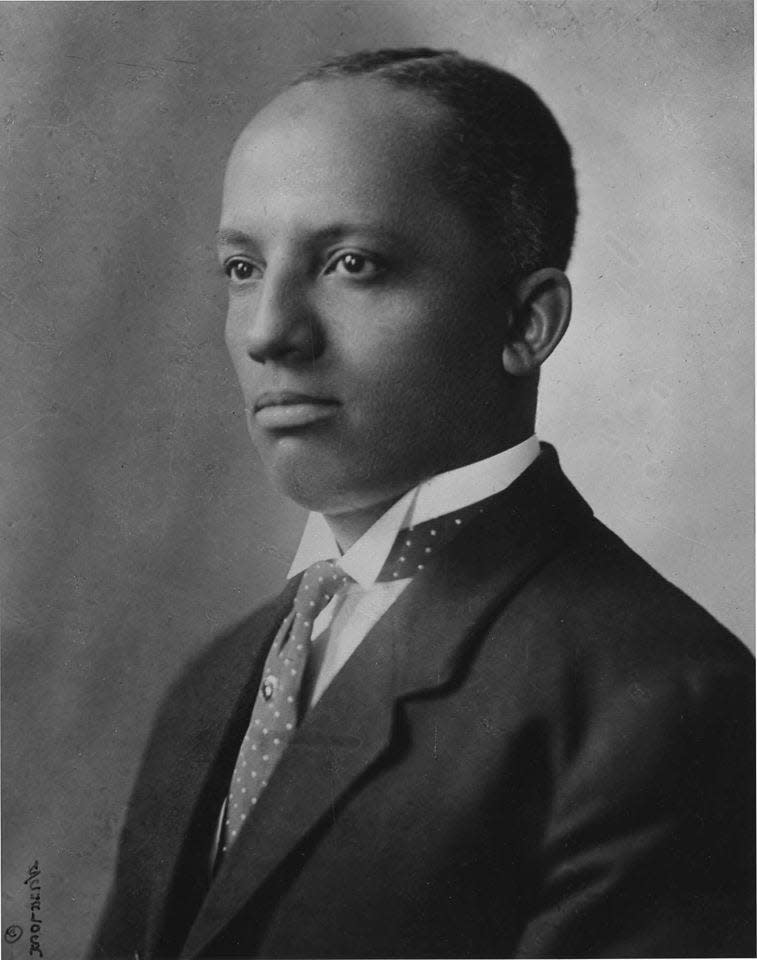When is Black History Month 2024? What to know about the observance and how to celebrate
- Oops!Something went wrong.Please try again later.
The annual celebration of Black History Month in America is here.
Whether you're in school, teaching students, or just hoping to learn more, here's what you need to know about Black History Month and how to celebrate.
When is Black History Month 2024?
Black History Month is celebrated each year in the United States during the month of February.
The annual observance is also recognized during February in Canada, and in October in the United Kingdom and Ireland.
More: Historic Black Oklahoma City school to be celebrated with plaza and displays
What is the 2024 Black History Month theme?
Since its origins in the 1920s, Black History Month has been assigned a theme.
For 2024, the theme is "African Americans and the Arts," according to the Association for the Study of African American Life and History.
You can find a list of Black History Month themes dating back to 1928 here.
What president made Black History Month?
President Gerald R. Ford was the first president to issue a message urging Americans to recognize what was then Black History Week in 1975. The next year, it was expanded to a month-long observation.
In 1986, Congress passed a law designating February 1986 as "National Black (Afro-American) History Month.”
More: 65 years after OKC's sit-in, Clara Luper's 'radical love' still reverberates today
Who started Black History Month?

What is now known as Black History Month started out as Black History Week, and was created thanks to Carter G. Woodson. Woodson founded the Association for the Study of African American Life and History in 1915, which was then the Association for the Study of Negro Life and History, and in 1916 the Journal of Negro History, now the Journal of African American History.
He announced Negro History Week would take place in February of 1926, and the response was overwhelming, according to the association. Teachers across the nation wanted to celebrate and requested materials for their students, like photos, lessons, plays for historical performances, and posters with important dates and people.
Why do we celebrate Black History Month in February?
Woodson chose the month of February because many Black Americans were already celebrating the February birthdays of President Abraham Lincoln and Frederick Douglass, on Feb. 12 and 14, respectively.
Woodson hoped this would help the week succeed, but he also hoped it would reform the tradition from studying the accomplishments of two men to studying the accomplishments of an entire race.
Why is Black History Month important? Why was Black History Month created?
Woodson started the annual observance to expose school children to black history, and in the hope that Black Americans and others would be able to see all of the contributions Blacks had made "to the advance of human civilization," according to the association.
Woodson also hoped that by bringing to light heroic black figures, whether they were inventors, entertainers or soldiers, and their influence on the creation of America, equality would follow soon after, according to the National Museum of African American History and Culture.
But some question whether Black History Month is still relevant for today's world.
"The great diversity within the black community needs the glue of the African American past to remind us of not just how far we have traveled but lo, how far there is to go," said Lonnie Bunch, founding director of the museum, in a plea to continue seeing Black history as something deserving of year-round and annual recognition.
How to celebrate Black History Month
Black History Month is all about keeping Black history alive through education and celebration.
In keeping with this year's artistic theme, the National Museum of African American History and Culture has a digital toolkit to learn about "Black people who have used art as their platform for social justice."
Here's a reading list for kids to learn more about Black history during February and year-round.
Helpful websites include blackpast.org and Black History 101 Mobile Museum, and you can attend the 2024 Black History Month Festival virtually here.
This article originally appeared on Oklahoman: Black History Month 2024: What we know about its origins, celebrating

